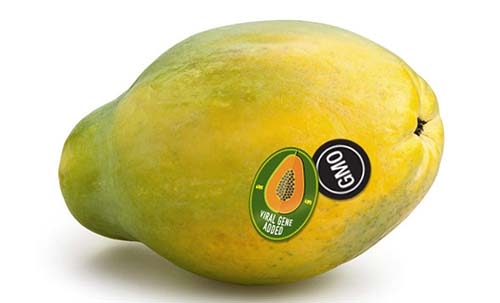No evidence that genetically modified crops unsafe to eat
Miami: A sweeping review Tuesday of decades of research on genetically modified crops found no evidence that they are unsafe to eat, but warned that evolving resistance could be a serious problem.
The findings issued by the US National Academies of Science examined two decades of research on genetically engineered (GE) crops, as they are also known, and called for regulators to take a closer look at the final product of a new plant variety, rather than the process used to breed or engineer it.
"We dug deeply into the literature to take a fresh look at the data on GE and conventionally bred crops," said committee chair Fred Gould, co-director of the Genetic Engineering and Society Center at North Carolina State University.
Gould acknowledged that the wealth of data and opinions on the controversial matter "had created a confusing landscape" and that the new report aimed to offer an unbiased review of the evidence.
The committee looked at almost 900 research and other publications on genetically engineered characteristics in maize (corn), soybean, and cotton -- representing the vast majority of commercial crops to date.
"While recognizing the inherent difficulty of detecting subtle or long-term effects on health or the environment, the study committee found no substantiated evidence of a difference in risks to human health between current commercially available genetically engineered (GE) crops and conventionally bred crops, nor did it find conclusive cause-and-effect evidence of environmental problems from the GE crops," said the report.
"New plant varieties that have intended or unintended novel characteristics that may present potential hazards should undergo safety testing -- regardless of whether they were developed using genetic engineering or conventional breeding techniques."
The report found that "evolved resistance to current GE characteristics in crops is a major agricultural problem," including both insect and weed resistance.
It cited "many locations" in which weeds have evolved resistance to glyphosate, the herbicide to which most biotech crops were engineered to be resistant.
- No disease link -
Biologists have used genetic engineering since the 1980s to produce fruit that can live longer on store shelves, have higher vitamin content and be more resilient against common diseases.
But the report pointed out that "the only genetically engineered characteristics that have been put into widespread commercial use are those that allow a crop to withstand the application of a herbicide or to be toxic to insect pests."
For this reason, the committee "avoided sweeping, generalized statements about the benefits and risks of GE crops," said the report.
It found no association "between any disease or chronic conditions and the consumption of GE foods."
On the other hand, the report pointed to some evidence that insect-resistant biotech crops have boosted human health by cutting back on insecticide poisonings.
Researchers found that crops that are insect-resistant or herbicide-resistant did not reduce the overall diversity of plant and insect life on farms.
Even some instances of genes transferring from an engineered crop to a wild relative species have not "demonstrated an adverse environmental effect," said the report.
- 'Pretty much just crops' -
"Overall, the committee found no conclusive evidence of cause-and-effect relationships between GE crops and environmental problems."
Economically, engineered soybean, cotton, and maize have "generally had favorable economic outcomes for producers who have adopted these crops, but outcomes have varied depending on pest abundance, farming practices, and agricultural infrastructure."
However, the study found that genetically modified crops had not changed the rate of increase in yields among US farmers of soybean, cotton, and maize.
Gould said this finding was something many on the committee had "scratched their heads about," since it opposed a long-held belief that such crops would boost farmers' output.
According to David Ervin, professor emeritus of environmental management and economics at Portland State University, who was not involved with the report, "a major contribution is the report's admonition that current regulation of GE crops has not kept pace with science."
Another outside expert, Wayne Parrott, professor in the department of crop and soil sciences at the University of Georgia, said the report offers a "sober assessment."
"The inescapable conclusion, after reading the report, is the GE crops are pretty much just crops," he said.
"They are not the panacea that some proponents claim, nor the dreaded monsters that others claim."
Related Posts

